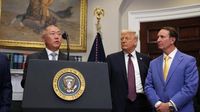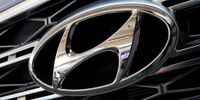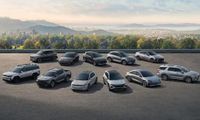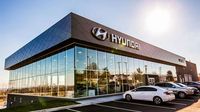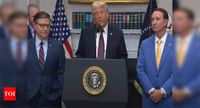Hyundai Motor Company has announced a groundbreaking $20 billion investment in U.S. manufacturing, highlighted by the establishment of a $5 billion steel plant in Louisiana. This facility, Hyundai’s first steel production site in the United States, is expected to create over 1,400 jobs and significantly bolster the company’s operations in North America. The announcement was made during a White House event attended by President Donald Trump, Hyundai Chairman Euisun Chung, and Louisiana Governor Jeff Landry.
The new steel plant in Louisiana will have an annual production capacity of more than 2.7 million metric tonnes. This facility is designed to supply steel to Hyundai’s automotive plants located in Alabama and Georgia, enhancing the company’s manufacturing capabilities in the region. Chairman Chung emphasized that this investment represents Hyundai’s largest commitment to the U.S. market to date.
The announcement aligns with a broader trend of international companies increasing their investments in the U.S., driven by concerns over tariffs and trade policies. Hyundai’s investment comes at a time when other major firms, including Taiwan Semiconductor Manufacturing Company and Apple, are also expanding their U.S. operations. Apple recently pledged $500 billion to enhance manufacturing and infrastructure across the country, showcasing a growing trend among global corporations to invest in American production.
During the announcement, President Trump linked Hyundai’s investment to his administration’s trade policies, asserting that the tariffs imposed on steel and aluminum imports have positively influenced corporate decisions. He stated, "This investment is a clear demonstration that tariffs very strongly work." The Trump administration has previously implemented a 25% tariff on steel and aluminum imports and is preparing to introduce new tariffs on car imports from Asia and Europe next month.
Chairman Chung acknowledged the role of Trump’s policies in Hyundai’s decision-making process, revealing that discussions about the steel plant began in 2019 during a meeting in Seoul. He noted that the timing of the announcement, coinciding with Trump’s second term, made it particularly significant. "The announcement coinciding with Trump's second term made the moment even more special," he said.
White House Press Secretary Karoline Leavitt praised the investment on social media, highlighting the potential for increased jobs and economic growth. She stated, "More investments, more jobs, and more money in the pockets of hardworking Americans – all thanks to President Trump’s economic policies." However, while such investment pledges are common at the start of a presidential term, their outcomes can vary significantly.
The U.S. auto industry remains robust, with American factories producing the majority of North American vehicles. In 2023, U.S. assembly plants manufactured 10.2 million vehicles, compared to 4 million in Mexico and 1.3 million in Canada. Hyundai's decision to invest heavily in the U.S. market indicates its commitment to not just expanding operations, but also aligning with the ongoing shifts in the automotive industry, especially as it faces increasing pressure to pivot towards electric vehicles.
As part of its broader strategy, Hyundai intends to ramp up electric vehicle production, emphasizing sustainability and innovation. This aligns with the company’s goal of becoming a significant player in the growing U.S. electric vehicle market. As more firms, including Apple, announce substantial commitments to U.S. manufacturing, the potential for economic growth remains optimistic while navigating the challenges posed by the trade landscape.
Despite uncertainties rooted in tariff implications and shifting market dynamics, Hyundai’s transformative investment is set to leave a lasting impact on the U.S. manufacturing sector. The automotive giant's commitment to local production underscores a key shift towards self-reliant manufacturing solutions in the face of global supply chain challenges.
As Hyundai launches its ambitious $20 billion project, it stands to promote not only job creation but also potentially sustainable manufacturing practices. This investment encapsulates a pivotal moment for both the company and the American economy, marrying bold corporate ambitions with the current economic policy framework fostered by the Trump administration.
Looking ahead, the industry will watch closely how Hyundai's investment unfolds and the real-world results of increased manufacturing. Will the promises of jobs and economic revitalization hold true? Hyundai's trajectory in the U.S. will serve as a bellwether for how other companies will approach their investments in a continuously evolving landscape.

